The Omnumi platform is a compliance and identity-first digital wallet platform built on blockchain technology.
It is a true wallet-as-a-service platform, providing developers and engineers with an API and event-driven architecture on which they can build digital wallet experiences that allow assets to be moved globally, in real-time, while maintaining global compliance standards like those of the FATF 40 and local jurisdictional regulatory requirements.
The Omnumi platform is a true wallet-as-a-service platform, allowing developers to build fully compliant digital wallet experiences with native identity integration.
At the same time, the wallets themselves remain non-custodial, always allowing the wallet holder to directly control their assets.
These capabilities are enabled through smart contracts that enforce specific transactional rules and allow the movement of a 1:1 USD-backed digital token anywhere within the Omnumi ecosystem while ensuring businesses never have to wonder if the funds are used for illegal and illicit purposes.
The Omnumi platform is a true wallet-as-a-service platform, allowing developers to build fully compliant digital wallet experiences with native identity integration.
How Businesses and Governments Benefit from Omnumi
By embedding identity at the base ledger level, wallet providers can provide financial services to persons previously unreachable on a risk basis, allowing access on limited terms for those with limited identities.
The Omnumi platform allows businesses, NGOs, financial institutions, and governments to use blockchain technology and digital (token) representations of actual currency to provide economic benefits and financial services digitally to their citizens and customers, with the trust of identity.
By embedding identity at the base ledger level, wallet providers can provide financial services to persons previously unreachable on a risk basis, allowing access on limited terms for those with limited identities.
The addition of progressive identities and blockchain-based rulesets fundamentally changes the remittance model. Smart contract automation allows funds to be managed/distributed in the way the remitter has intended, eliminating guesswork and assumptions about whether the receiving party is a trusted person. The Omnumi platofrm therefore eliminates substantial abuse and fraud, which is a major flaw in the current remitting operating models.
This creates a new level of financial inclusion that plays out in disbursement of government funds in countries where a citizen may not have a banking relationship, or in business models that require disbursement of funds in real time, all while maintaining regulatory compliance.
The Omnumi Vision
The Omnumi network will enable businesses and entities to create digital wallet experiences that ensure the secure and compliant execution of local, regional or global remittances or disbursements.
The Omnumi platfrom will enable funds to be moved, accessed and used within seconds, 24 hours a day and 7 days a week, giving entities, governments and people the ability to move assets locally, regionally and globally in a low risk, controlled, trusted, auditable and secure way immediately when and where needed.
In addition, remitters utilizing a wallet built on the Omnumi platform will be able to act as the ‘trusted person’ entity where the remitter has full control and insight as to how he or she wants the funds to be applied or distributed. The Universal Network enables this by allowing the remitter (entity or individual) to define what portion of the remitted funds go to what destination and purpose and subsequently, by means of detailed rules and smart contracts, the Omnumi platform manages the execution, compliance and auditing of the goals as defined by the remitter.
A migrant worker, for instance, may need to send money home for different purposes — paying the mortgage, providing the family with some spending money, and paying the utilities. With how the system works today, they would need to send three separate wires at $50 a transfer or rely on a person they trust to distribute the funds. With Omnumi, the sender can know exactly who the recipients are and that each person received the right amount of money without relying on an intermediary, reducing fraud, cost, and time.
The Omnumi platform will enable funds to be moved, accessed and used within seconds, 24 hours a day and 7 days a week, giving entities, governments and people the ability to move assets locally, regionally and globally in a low risk, controlled, trusted, auditable and secure way immediately when and where needed.
The Omnumi Team
The Omnumi team consists of executives and board members with extensive compliance, identity and financial services experience. This makes them uniquely qualified to deploy modern technology as a solution for global problems in a safe, secure, sound, and compliant way.
Kirk Chapman, CEO & Board Member — Kirk brings more than 20 years of technical banking and payment experience to Omnumi. He previously served as Head of Strategy at Galileo and Advisor to Anthony Noto, CEO of SoFi.
Prior to Galileo, he served as the Head of Technology for Independence National Bank from 2016–2017, where he was responsible for leading and building an online lending platform. He was also the Sr. Director of Engineering for ND Bank, where he ran all aspects of technology for a startup entering the mobile payments space. His team successfully completed the first US installation of a global banking core, which included connectivity to global card issuers and processors.
Izzet Can Akkus (Can), COO & Board Member — Can has more than 15 years of experience in strategy and operations with a focus on financial services. As a consultant, Can led regulatory or corporate strategy-driven operating model design and implementations for financial institutions, serving most recently as a Director at Promontory Financial Group. He also had stints at Deloitte and Slalom Consulting.
In his role as Sr. Director of Strategy in VC firm Hard Yaka, he builds, invests in, partners with and acquires disruptive technologies in fintech, blockchain, web3 and banking. Can has an MBA from Wharton where he graduated as a Palmer Scholar and is also a hobbyist serial entrepreneur, angel investor and a start-up advisor.
Greg Kidd, Board Member — Greg is the co-founder and CEO of GlobaliD, leading innovator in decentralized identity, and a co-founder and partner of investment firm Hard Yaka. As an investor, Greg provided first money at Twitter, Square, Coinbase, Robinhood, and Solana. Other early investments include Ripple, Uphold, and Brave. He’s also co-founder of Apto Payments, a leading card issuance fintech platform.
After working at consulting firm Booz Allen Hamilton, Greg took his first company public on the NASDAQ with $250 million in revenue and 6,500 staff globally. He later served in the payments division of the Board of Governors of the Federal Reserve System and as a director at the financial regulatory consulting firm Promontory Financial Group. Greg also served as Chief Risk Officer at Andreesen Horowitz and Google Ventures backed startup Ripple. Greg graduated from Brown University and earned an MBA from Yale University and an MPA in public policy from Harvard’s Kennedy School.
Chris Lewis, Board Member — Chris is a financial services executive with more than 30 years of experience in risk and compliance management in the fintech, consumer finance, banking, consultancy, and regulatory sectors. Chris served as a Director at Promontory Financial Group for 11 years and was recently the Chief Risk and Compliance Officer at LendUp. He is a former Senior Adviser to the Office of the Comptroller of the Currency
Margaret Slemmer, Board Member — Margaret has over two decades of experience across the financial services industry as a regulator, banker, legal analyst, consultant, and investor. Currently, she is a Partner with Hard Yaka. Throughout her career, Margaret’s work has centered around helping financial institutions understand and respond to significant enforcement actions, educating industry newcomers (e.g., fintech management) on the regulatory environment and its requirements, and conducting independent investigations.
She has expertise in board governance, risk management, and compliance. Prior to her current role, Margaret led investigative and remediation teams responding to high-profile safety and soundness, and compliance failures. Most recently, she led an independent investigation of a large money-laundering scheme at a European bank. Previously, she led remediation teams at one of the largest U.S. mortgage lenders during the mortgage crisis.

